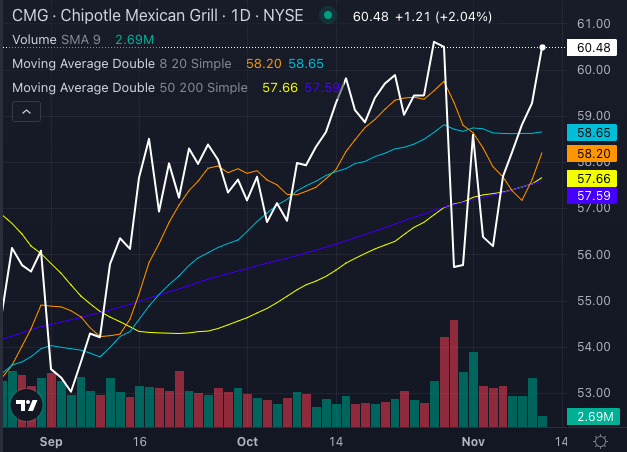Imagine a digital Wild West, where intangible currencies sway like tumbleweeds in the breeze, and the line between investing and gaming blurs. Welcome to the realm of cryptocurrency — a world where volatility reigns supreme, and the IRS lurks in the shadows, ready to collect its dues.
While the concept of cryptocurrency may seem ephemeral, the taxman views it in a different light. To the IRS, crypto transactions are akin to buying or selling traditional financial assets. Whether you’re trading Bitcoin or buying your morning latte with Dogecoin, Uncle Sam expects his cut. Here are the key tax implications you should grasp when delving into the realm of cryptocurrencies.
Cryptocurrency: Taxable Terrain
In the world of crypto, nothing is certain except death and taxes — especially taxes. The IRS considers cryptocurrency a capital asset, making any gains taxable. Beyond trading, even using cryptocurrency for everyday transactions can trigger tax obligations.
If crypto is your game, be ready to declare every move to the IRS when tax season comes around.
Taxing Crypto: Capital Gains Galore
Buying and selling crypto is akin to trading stocks in the eyes of the taxman. Sell your crypto after holding it for a year or more, and you’ll face long-term capital gains taxes. Hold for less than a year, and short-term capital gains taxes apply.
For the tax weary, long-term gains enjoy a more favorable tax rate, maxing out at 15% for most taxpayers. Some might even pay a mere 0% on these gains.
Spending Crypto: Tax Required
Planning to splurge your crypto on a shopping spree? Hold your horses. Purchasing goods or services with crypto is a taxable event. In the eyes of the IRS, such transactions are akin to selling your crypto for dollars — potentially triggering taxable gains.
So, whether it’s a cup of coffee or a new wardrobe, remember: Taxman’s watching.
Mined Crypto: Taxed Harvest
Mining cryptocurrencies is akin to panning for digital gold. You get rewarded for your efforts, but don’t think the taxman will turn a blind eye. The IRS sees these rewards as taxable income, subjecting miners to ordinary income tax.
If you sell these mined cryptocurrencies after their value appreciates, be prepared for additional capital gains taxes.
US Dollars to Crypto: Tax Truce
Feeling the urge to stock up on crypto using US dollars? Fear not, as this transaction won’t trigger immediate tax consequences. Buy to your heart’s content without worrying about the taxman peering over your shoulder.
The Cryptocurrency Tax Conundrum Unveiled: Navigating IRS Regulations
Understanding Tax Obligations for Cryptocurrency Gains
When it comes to your cryptocurrency holdings, the looming shadow of taxes can be a murky labyrinth. Fear not, though, for clarity lies ahead. Remember, the taxman cometh only when gains from selling or exchanging your digital assets materialize.
Receipt of Tax Information from Crypto Exchanges
Dealing with a crypto exchange that doles out Form 1099-MISC can be akin to finding a beacon in a storm. Spilling the beans, TokenTax affirms that exchanges must furnish this form to customers with earnings surpassing $600 during the tax year in 2023.
If the tax tidbit doesn’t reach you, the IRS has a blunt declaration – report your income, gains, or losses from all virtual currency transactions on your tax return. Detailing each transaction meticulously paves the way to calculating taxable gains or losses seamlessly.
Navigating the Tax Form Maze
When it’s time to face the music, clutching the right tax forms in your grip is half the battle won. Strap in for Form 8949 adventure, where your crypto transactions, down to the minutest detail, find a home. These entries then trot along to your Schedule D, laying out all your capital gains and losses.
Crypto riches from mining typically strut their stuff on Schedule C if your mining escapades border on a full-fledged business. This venture might also elevate your status to paying self-employment taxes. If mining is more of a leisurely pursuit, report those felicitous gains on Line 8 of Schedule 1.
Complementing this spectacle, crypto exchanges gleefully hand out the Form 1099-MISC if you garnered $600 or more during the tax year. As the tax web thickens, seeking counsel from a tax advisor becomes not just a suggestion, but a beacon of hope in the labyrinth of crypto taxes.
Obligation to Report Digital Asset Income for Tax Year 2023
The IRS beckons taxpayers to unfurl their digital asset income tapestry as they file their 2023 federal income tax return. This directive shouldn’t be a bolt from the blue, considering its recurrence in the tax dance of 2022.
The seamless joining of digital asset income threads for tax filings was deftly highlighted by the astute contributions of the esteemed Heather Taylor. Tackling digital assets on your tax return just got a shade easier, thanks to the sage advice flowing from the insightful pens of tax experts.
More From GOBankingRates


